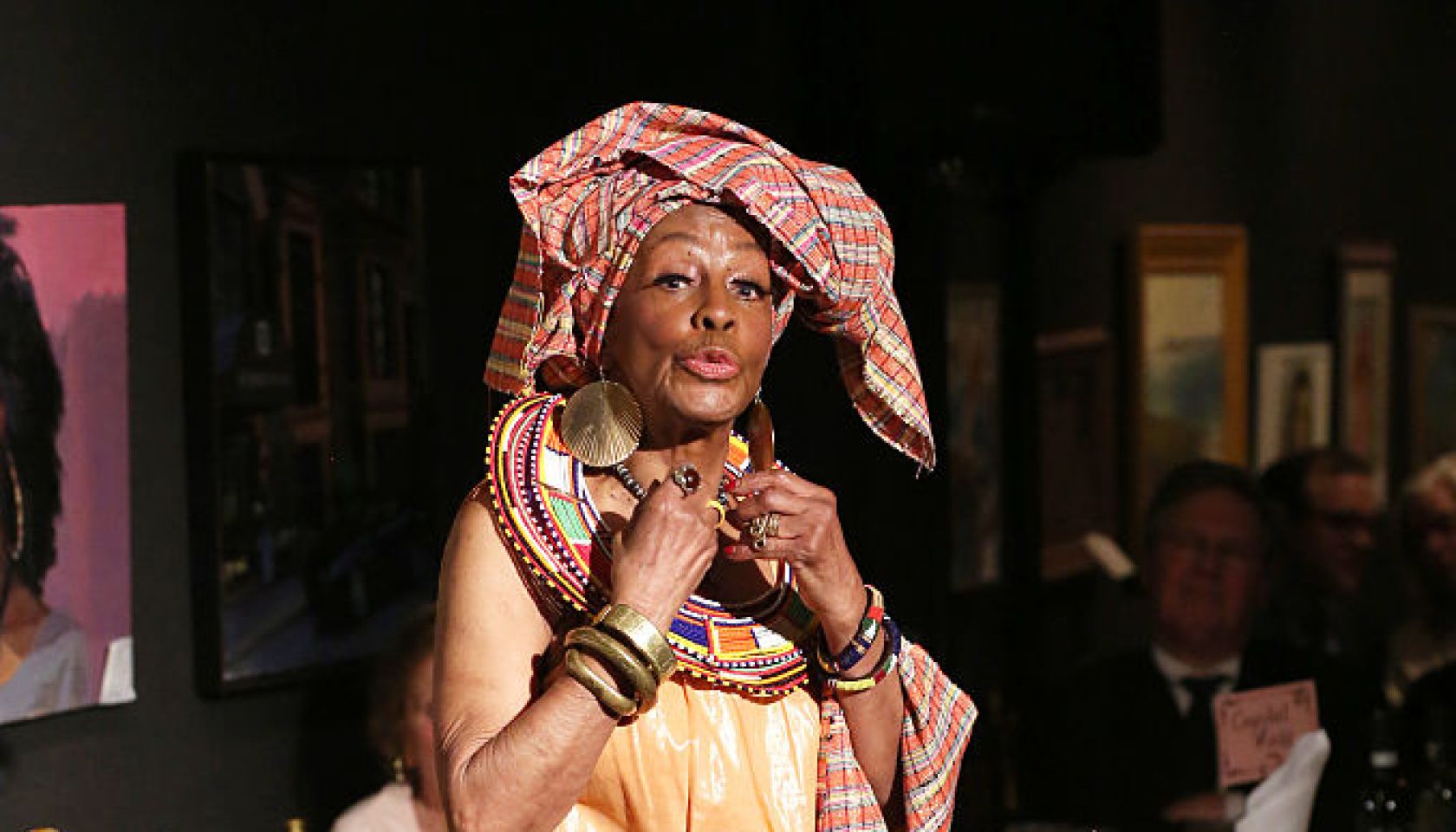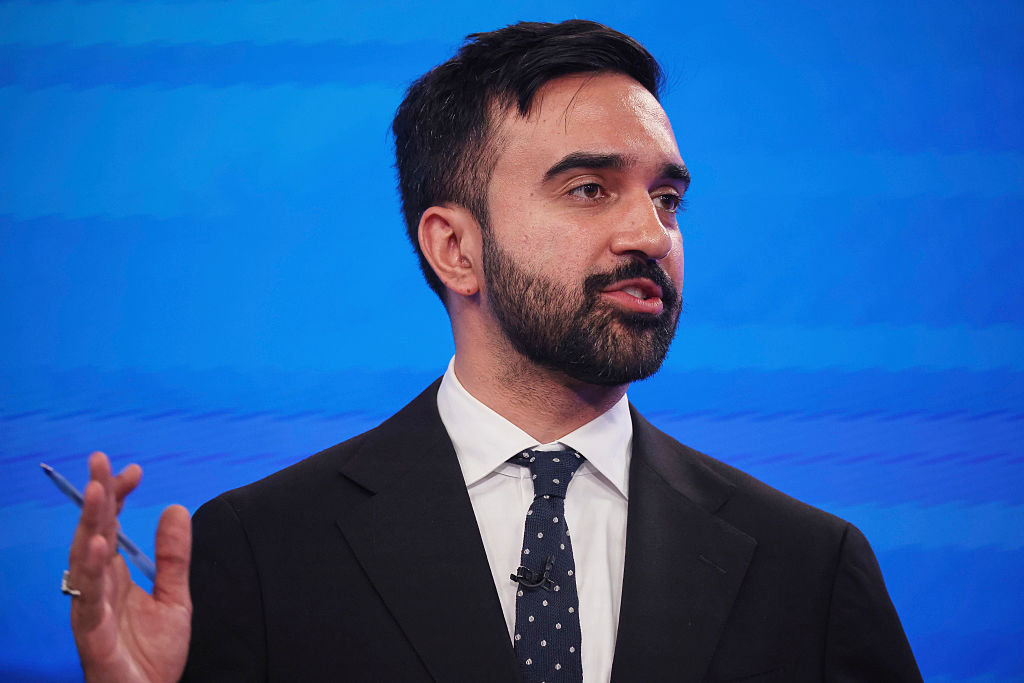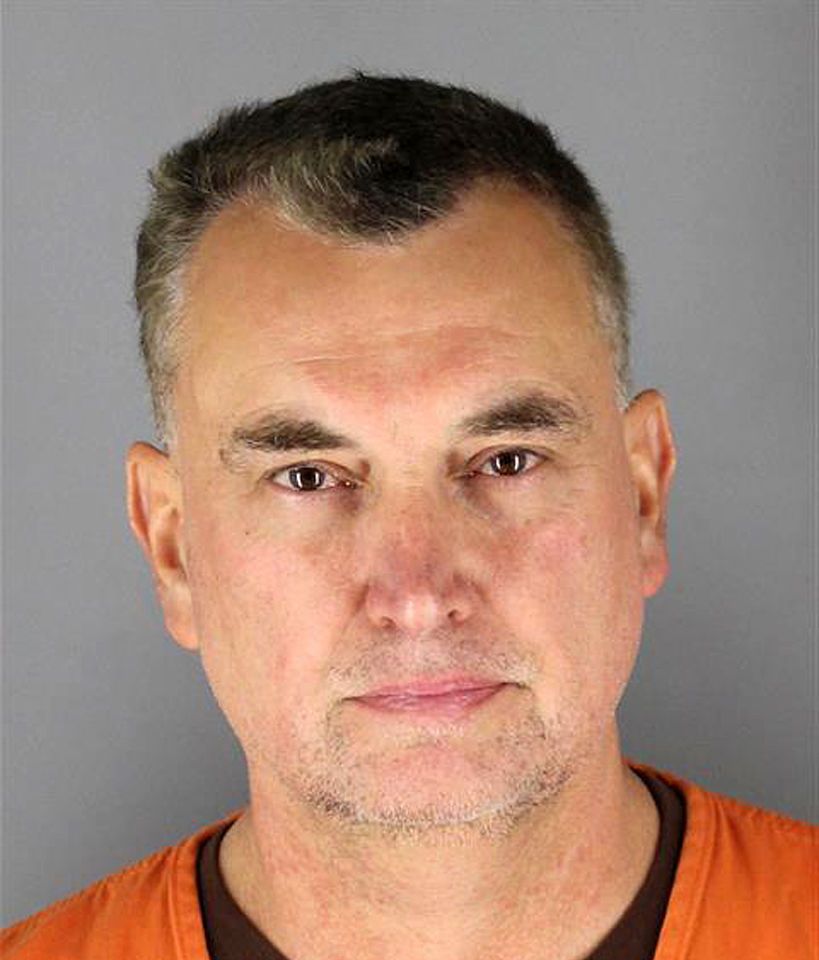Elijah McClain: Convictions Spark Changes For Patients In Custody
Justice For Elijah McClain: Convictions Spark Changes In Procedures For Patients In Police Custody
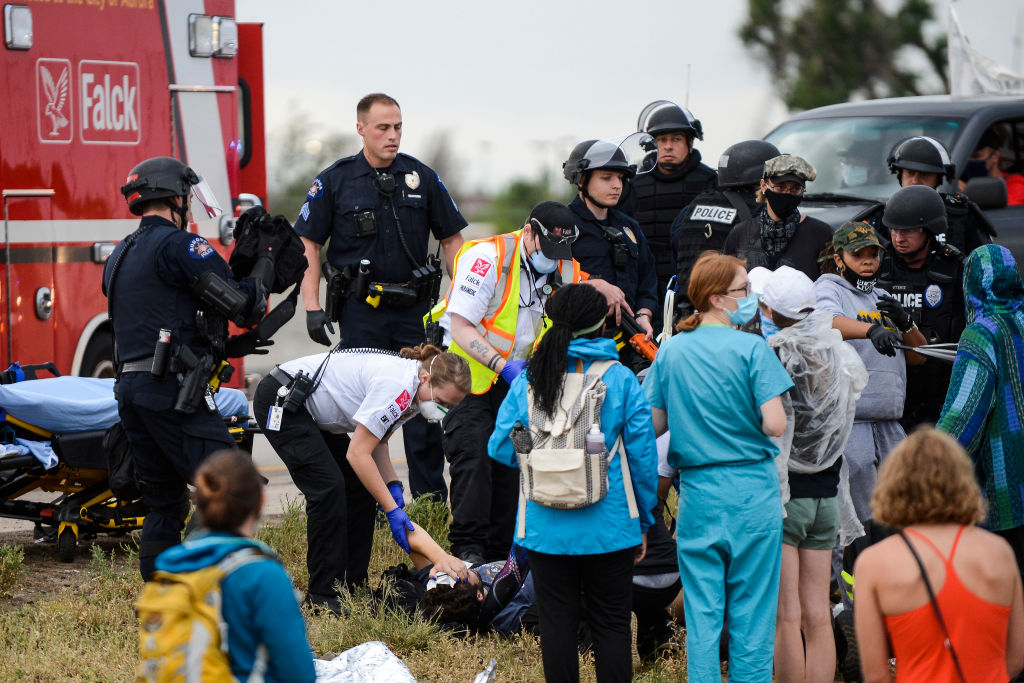
Source: Michael Ciaglo / Getty
UPDATED: 11 a.m. ET, Mar. 1, 2024
First responders are making changes to their procedures for patients in police custody just months after paramedics were found guilty of criminally negligent homicide in the 2019 death of Elijah McClain.
The conviction has highlighted gaps in medical procedures during arrests that professionals say must be addressed.
According to AP, one of the major changes to protocols is aimed at elevating how seriously ketamine injections are treated — or avoiding them altogether when alternative drugs are more appropriate.
“We failed to realize just how dangerous the restraint and chemical sedation of these individuals can be,” Eric Jaeger, a paramedic and EMS educator in New Hampshire, told AP. “For better or worse the criminal convictions are focusing attention on the problem.”
Departments are also now requiring comprehensive patient assessments before and after ketamine injections and altogether cautioning against the use of ketamine on people being restrained by police in a prone position, which increases the chances of fatal complications when using the drug.
Peter Antevy, medical director for several Florida fire departments, told AP in the McClain case, “a lot of these basics were not done.”
“Everyone kind of assumed people just do them. But more and more you’re seeing with the advent of body cameras that people aren’t doing these things,” he told the publication. “We need to put the basics in black and white.”
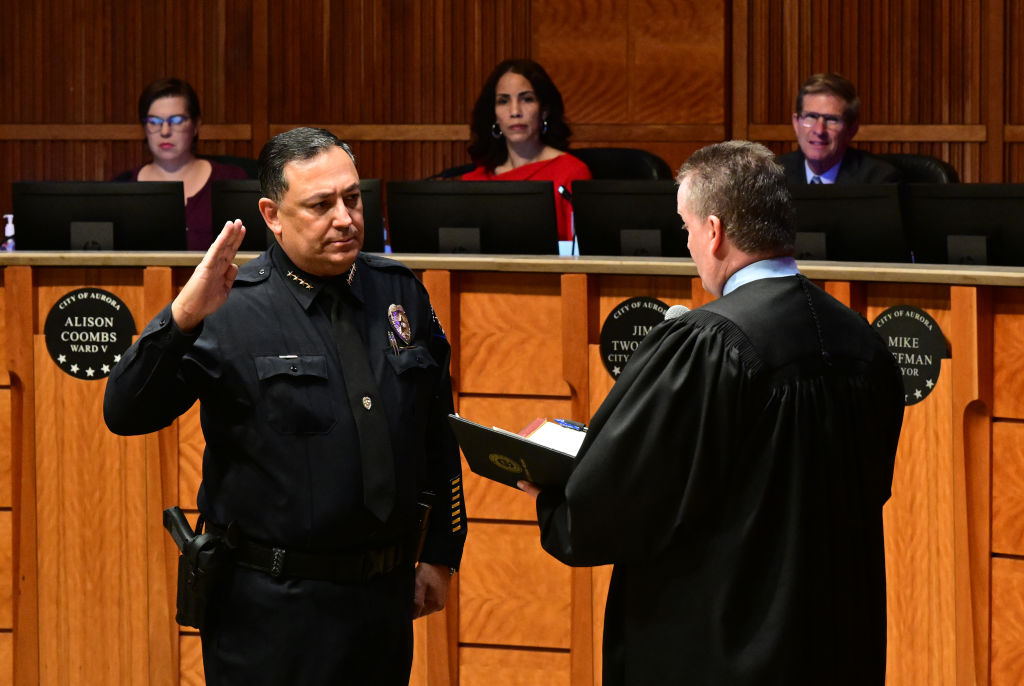
Source: Helen H. Richardson/MediaNews Group/The Denver Post via Getty Images / Getty
Aurora police are also changing their tune about the events that led to the death of Elijah McClain.
During a news conference Thursday, Aurora Interim Chief Art Acevedo told reporters that the officers involved in McClain’s death went “hands-on” too quickly.
“We don’t want our officers to go hands-on so quickly, unless there’s an actual threat to them,” Acevedo said during the news conference.
Initially, the department cleared the officers of all wrongdoing. After McClain died in 2019, Former Aurora Police Chief Nick Metz told reporters, “I think overall the officers did a good job trying to calm Elijah down.”
Chief Acevedo also addressed McClain’s mother during the press conference.
“We failed Elijah McClain as a department, we failed (his mother Sheneen) McClain as a department, we failed our community as a department,” said Acevedo. “We also failed the officers that encountered him that night,” Acevedo said. “…They failed because of the attitude, the mindset of: ‘You ask someone to do something, you tell someone to do something and then you make someone do something.’ If you look at the approach to Elijah McClain, we went from ‘asking’ to ‘telling’ to ‘making’ very quickly, and we should not be going hands-on and making someone do something unless there is an immediate threat. It’s tragic.”
When asked how he would make sure something like this never happened again, Acevedo pointed to communication between officers and their suspects.
“There’s going to be a lot more talking,” he said. “It’s a consensual contact, right? We are going to discuss it, we are going to talk to him, and then if we don’t have legal cause to detain, we are training our people to get back in the car and do one of two things: leave, or just watch the person.”
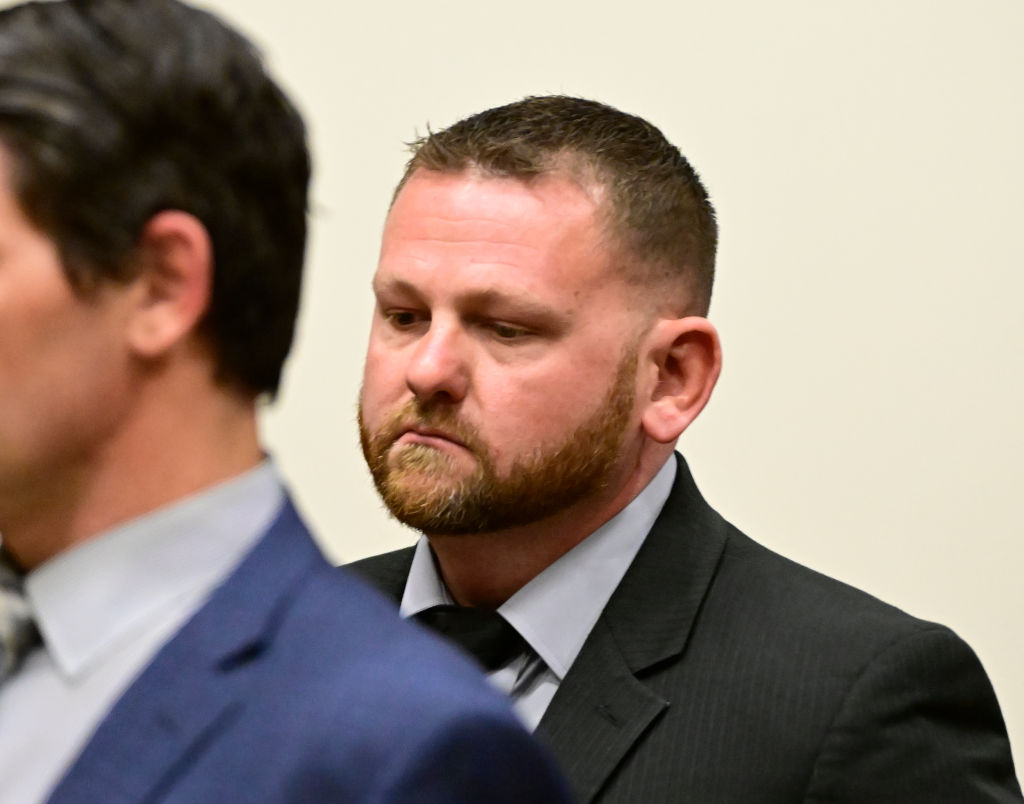
Aurora Police Officer Randy Roedema, right, during an arraignment in the Adams County district court at the Adams County Justice Center on January 20, 2023. | Source: Andy Cross/MediaNews Group/The Denver Post via Getty Images / Getty
UPDATED: 6 p.m. ET, Jan. 5, 2024
The lone former Colorado police officer convicted in the death of Elijah McClain was sentenced Friday afternoon to 14 months in prison, less than half of the prison time prosecutors were seeking.
Randy Roedema, who worked for the Aurora Police Department when he helped another officer restrain the young Black man while paramedics administered a powerful sedative that proved to be fatal, was also sentenced to four years of probation, the Sentinel Colorado reported.
Prosecutors were seeking a sentence of at least three years for Roedema, who in November was found guilty of criminally negligent homicide and third-degree assault in McClain’s death. Former officers Jason Rosenblatt and Nathan Woodyard were acquitted.
The guilty verdict for Roedema comes a little more than a week since a jury convicted two paramedics for their roles in McClain’s death.
UPDATED: 11 a.m. ET, Dec. 26
A Jury has finally decided if two first responders helped cause the death of a 23-year-old Black man after injecting him with ketamine while he was being restrained by Aurora police.
Two Aurora Fire Department paramedics who were charged in the 2019 death of Elijah McClain were found guilty of criminally negligent homicide last week, ending the last trial for those held accountable for McClain’s death.
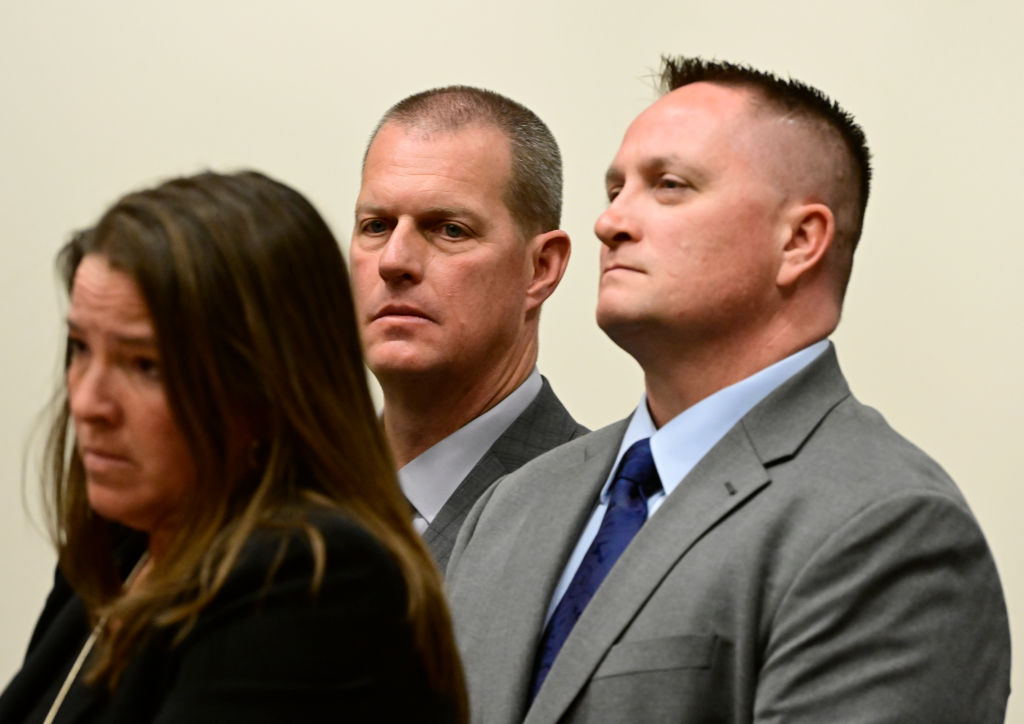
Source: Andy Cross/MediaNews Group/The Denver Post via Getty Images / Getty
According to KSL, Jeremy Cooper and Lt. Peter Cichuniec were both found guilty of criminally negligent homicide, which is punishable by up to three years in prison. The jury also found Cichuniec guilty of assault in the second degree for administering McClain the sedative ketamine while he was being detained. Cichuniec was taken into custody immediately after the jury’s decision and Cooper was given bond pending a March 1st, sentencing date.
“Elijah did nothing wrong. His life mattered. He should be with us here today,” Colorado Attorney General Phil Weiser said after the verdict.
But McClain’s mother was not satisfied.
“Three out of five convictions are not justice,” Sheneen McClain said in a statement over the weekend. “The only thing the convictions serve is a very small acknowledgment of accountability in the justice system.”
According to 9 News, forensic pathologist Dr. Ljubisa Dragovic told jurors that he believed McClain died from a lack of oxygen to the brain and called his death “accidental.”
“Were you able to form an opinion, to a reasonable degree of medical certainty as to whether or not ketamine caused or contributed to the death of Elijah McClain?” asked defense attorney David Goddard.
“Yes, I don’t believe it had any effect in this situation,” replied Dragovic, who asked to review records, videos and reports related to the case.
But prosecutors painted a different picture in court earlier in the week, with medical experts testifying that McClain was given a higher dose of ketamine than recommended.
Forensic Pathologist Dr. Roger A. Mitchell testified that he believed the cause of death was from “complications following acute ketamine administration during violence subdual and restraint by law enforcement and emergency response personnel.” Mitchell also listed homicide as the manner of death in his report.
“The ketamine administration was listed in my cause of death as a cause, so those who administered that ketamine are responsible for the death,” Mitchell said in court Wednesday.
Cooper and Cichuniec were charged with manslaughter, negligent homicide and several counts of assault for their role in McClain’s death. Both pleaded not guilty.
Jury Selection In Final Trial
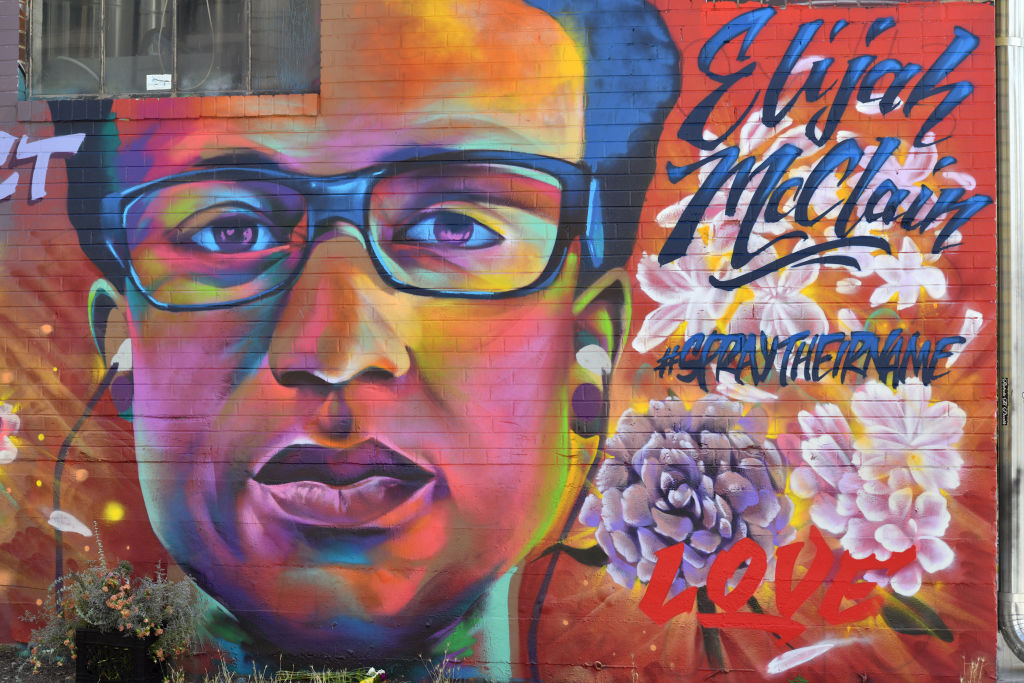
Source: Hyoung Chang/MediaNews Group/The Denver Post via Getty Images / Getty
Jury selection in the third trial for the death of Elijah McClain began Monday as the two paramedics charged in his death will face their fate.
Questionnaires were handed out as the process of selecting a jury began Thursday.
This is the final trial for the people charged in McClain’s death.
Douglas Wolfberg, a former emergency medicine instructor told AP that it is very rare that paramedics or first responders are charged after suspects die in custody
“It’s exceedingly rare for EMS providers to be charged criminally related to providing inpatient care,” Wolfberg told AP. “That is normally a medical malpractice issue, a negligent case which is civil, and it’s rarely criminal. This breaks new ground.”
Last month, a jury convicted Aurora Police Officer Randy Roedema of criminally negligent homicide and third-degree assault in McClain’s death, but officers Jason Rosenblatt and Nathan Woodyard were acquitted.
Now, a jury must decide whether the decision paramedics made in administering McClain with ketamine helped cause his death.
Nathan Woodyard acquitted
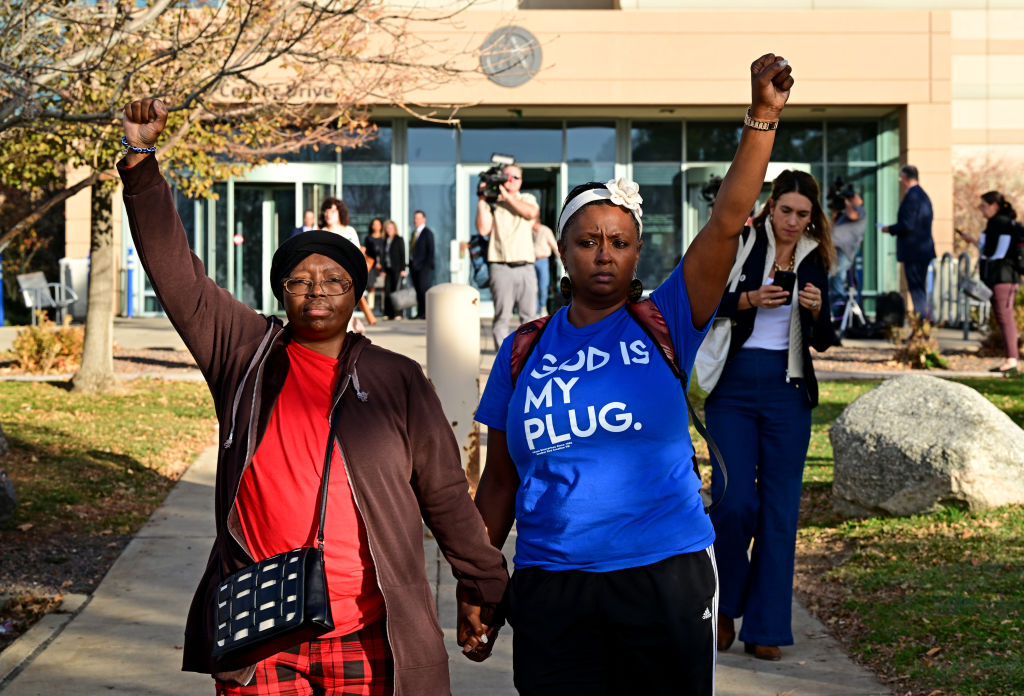
Source: Helen H. Richardson/MediaNews Group/The Denver Post via Getty Images / Getty
Suspended Aurora police officer Nathan Woodyard was acquitted by a jury for his role in the death of Elijah McClain.
According to AP, the 12-person jury just found Woodyard not guilty of homicide and manslaughter following a weekslong trial.
The verdict comes just a month after Randy Roedema was convicted of criminally negligent homicide and third-degree assault while Officer Jason Rosenblatt was also acquitted of all charges.
During Woodyard’s trial, prosecutors tried to prove that his actions, including the neck hold, contributed to McClain’s death. But defense attorneys argued that Woodyard wasn’t responsible, saying he was not present during key moments of the altercation with McClain.
After the verdict was read, Sheneen McClain, Elijah’s mother, left the courtroom with her fist raised in the air. Although she declined to comment, a supporter called the verdict “pathetic” and a stain on the justice system once again.
“Her son should be alive, and everybody claims to agree with that, but for some reason we can’t hold to account the people that took that away,” MiDian Holmes, an activist and friend of Sheneen McClain, told AP. “I think she understands and she recognizes that if she can feel, she can fight. This fight is not over for Sheneen McClain. She is going to turn this pain into promise and into progress.”
Nathan Woodyard testifies in his own trial
On Wednesday, Woodyard took the stand and testified that he thought he was going to get shot during the 2019 altercation that led to Elijah McClain’s death.
According to 9 News, Woodyard explained to the court that he did grab McClain after approaching him and as he and fellow officers Randy Roedema and Jason Rosenblatt restrained the young Black man Roedema shouted that McClain had attempted to grab Rosenblatt’s gun.
“I heard Mr. Roedema say, ‘He grabbed your gun dude,'” Woodyard told the jury.
“What did you hear before that?’ asked his defense attorney Megan Downing.
“I heard Mr. McClain say I intend to take my power back.”
“What went through your mind?”
“I was expecting to get shot and I thought I’d never see my wife again,” Woodyard replied.
Woodyard continued, “At that point, I didn’t know if he [McClain] had successfully retrieved a gun or if other officers were fighting over a gun in a holster. My first thought was this needs to end immediately.”
He then admitted to using the carotid hold on McClain, which knocked him unconscious.
He also admitted to the jury that he did not tell the sergeant or paramedics that McClain had complained of breathing problems and that he was “overwhelmed” and “scared” at the time.
“I was scared that my emotions – they might prevent me from being able to help,” he said. “At that point, I felt that I was more of a hindrance.”
During cross-examination, Woodyard explained that he wished he would have handled the situation differently.
“If you could go back in time, when you walked out of that police car you wouldn’t have come out hot? Stop. Stop. Stop. You would have done it differently?” asked prosecutor Jason Slothauber.
“Yes,” Woodyard replied.
“You wouldn’t have grabbed him as soon as you got up next to him?
“Yes.”
“And if you could go back in time, you would take back that carotid hold?
“Yes,” he replied after a very long pause.
Prosecutors call their final witness
Last week, prosecutors called their final witness in the trial of suspended Aurora police officer Nathan Woodyard for his connection in the 2019 death of Elijah McClain.
Forensic pathologist Dr. Roger Mitchell took the stand, calling McClain’s death a homicide, saying he believed Aurora officers contributed to his death.
Prosecutors looked to prove that Woodyard’s carotid neck hold, plus the physical force he and other officers used on McClain restricted his breathing, helping cause his death.
According to KDVR, Mitchell also testified that McClain was in obvious distress and needed emergency medical attention before he was given ketamine. Video evidence shown in court proved he was having trouble breathing and appeared to be choking on his vomit.
“The lack of response to me as a medical professional suggests that he’s not alright,” Mitchell testified.
Body camera footage also showed that McClain was given ketamine 4 minutes and 51 seconds after he could no longer respond or stand on his own. Officers claimed they administered the drug when McClain was fighting them.
Mitchell also told the court he didn’t see a reason in the video to “medically restrain” McClain.
Closing statements in Woodyard’s trial will begin this week.
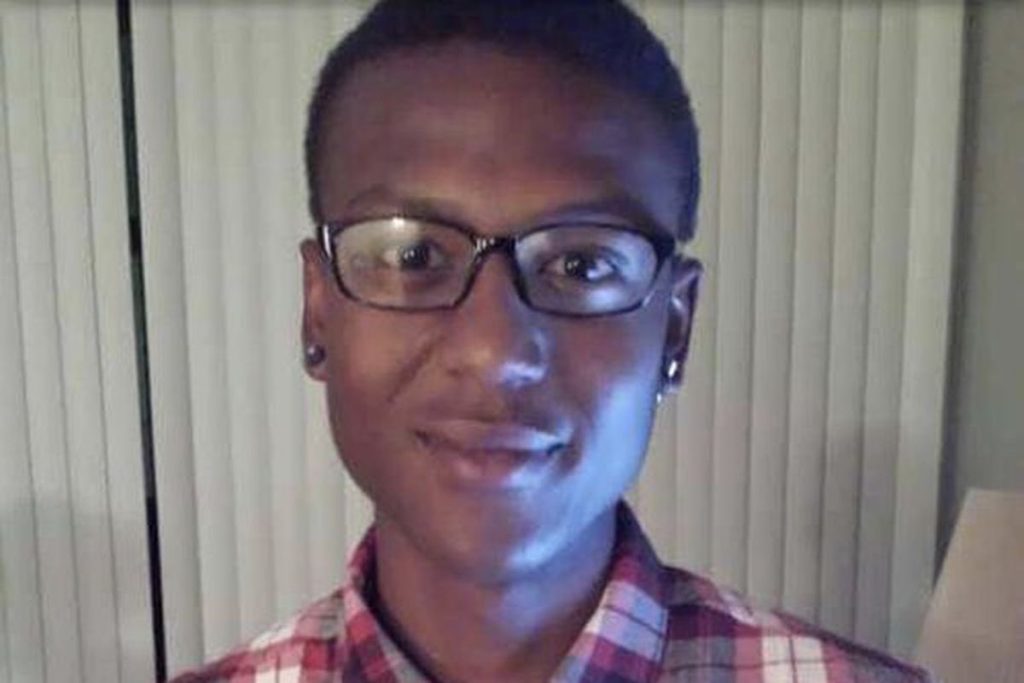
Source: Twitter / Twitter
Prosecutors explain the “carotid” neck hold
The trial of suspended Aurora police officer Nathan Woodyard for his connection in the 2019 death of Elijah McClain could be coming to an end this week.
During Wednesday’s testimony in the trial of suspended Aurora police officer Nathan Woodyard for his connection in the 2019 death of Elijah McClain, prosecutors tried to prove that Woodyard was well-trained in the dangerous neck hold he used on McClain the night he died.
Prosecutors gave the court details of the neck hold called the “carotid” hold, which uses the biceps and forearm to squeeze the arteries that deliver blood to the brain. The goal of this hold is to gain compliance, but prosecutors said it can also cause serious health consequences, especially when officers have spent so much time training how to properly use it.
According to 9 News, Aurora Police Sgt. Kevin Smyth, who oversees the department’s training program, testified Wednesday about the time officers spent training on this dangerous technique.
“There’s like 130 to 180 techniques on a list that an officer needs to know in our academy,” Smyth told the court.
“And so, depending on those, if we were to break it down to ‘how much time do you spend on this one, how much time do you spend on this one,’ we would spend more time on the carotid than any one particular technique in the academy.”
During Smyth’s long day of testimony, he also shared that training in the carotid hold was so important to officers that they take annual tests on the hold and have to score 100% due to its health risks.
“If it’s done improperly, the risks go much higher,” Smyth said. “And so, because of those risks, we have a different standard for testing than we do in other – in other techniques. Techniques like putting a handcuff on, or, you know, making sure you’re using the correct hand positioning in a search – those … have less risk if you do it incorrectly. With the carotid, we want to make sure that it’s done exactly the way it’s trained every time.”
Prosecutors also tried to prove that the incident that led to McClain’s death started with the neck hold, as he suffered low oxygen to his brain and a surge of acid in his body before he was given a dose of the sedative ketamine before he died.
On Tuesday, the nurse who helped draw blood from McClain after he was admitted to the University of Colorado hospital testified in court, along with employees from a private lab in Pennsylvania that tested the blood samples.
According to their testimony, both ketamine and marijuana were found in McClain’s blood. Other medical experts have testified during the trial that ketamine was the primary cause of McClain’s death. Still, prosecutors have been trying to prove that Woodyard also violated department policy when he physically confronted McClain the night he was killed.
According to 9 News, three or four witnesses are expected to testify on Wednesday and prosecutors plan to call their final witness on Friday.
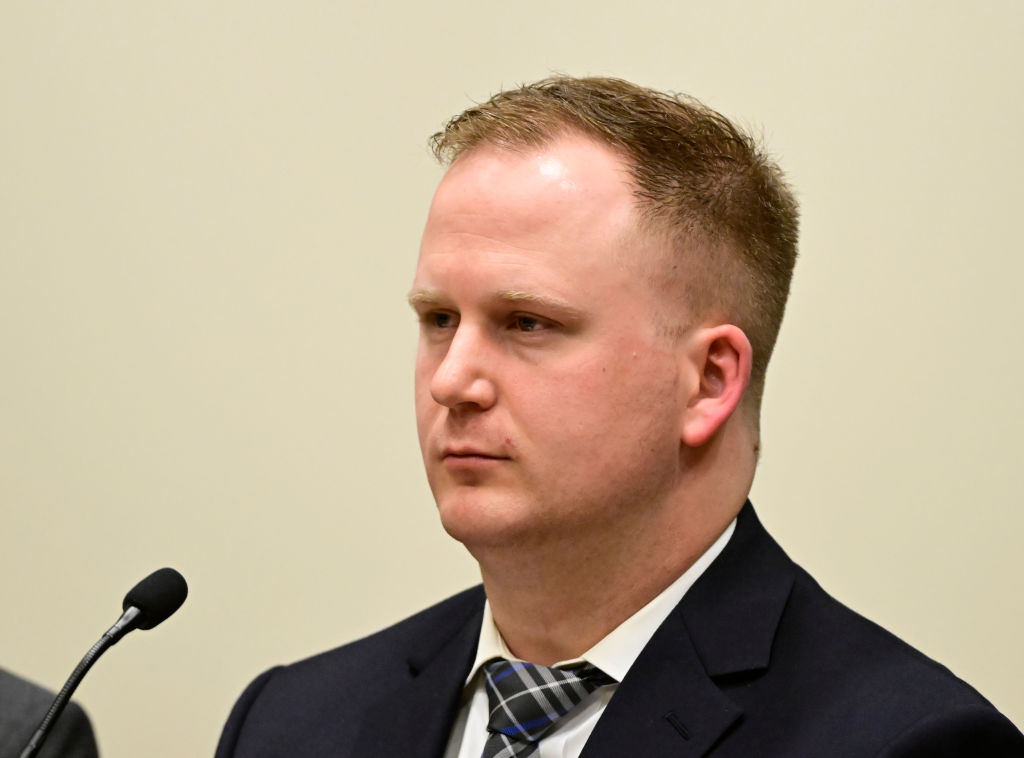
Source: Andy Cross/MediaNews Group/The Denver Post via Getty Images / Getty
Last month, EMT Aleesa Gonzalez testified in the trial of suspended Aurora police officer Nathan Woodyard for his connection in the 2019 death of Elijah McClain.
Gonzalez was the EMT officer who first administered CPR in the back of an ambulance after McClain was given ketamine during his incident with police.
During her testimony, Gonzalez told the court she administered two rounds of CPR in the ambulance.
“I did a round of CPR,” Gonzalez said. “I did [another] round of CPR for approximately two minutes.”
She then said she took McClain to the hospital.
Aurora Police officer Darron Dunson also testified on Friday, telling the court he was present when McClain told officers he couldn’t breathe. This is the second trial to hold folks accountable for McClain’s tragic death.
Last Wednesday a doctor testified in the trial of suspended Aurora police officer Nathan Woodyard for his connection in the 2019 death of Elijah McClain.
Woodyard was the first Aurora officer to confront McClain on the night he died. He faces a charge of reckless manslaughter after grabbing McClain within seconds of ordering him to stop, then holding him before other officers helped him overpower the Black man.
According to 9 News, Dr. David Beuther, a certified pulmonary and critical care medicine expert, testified that McClain was already in a potentially life-threatening situation before paramedics injected him with ketamine.
Beuther says that after police restrained McClain, his medical condition deteriorated fast, even before he was given the sedative.
“He was already sedated — he was not responsive,” Beuther said. “He was not very interactive, and in fact if he were a patient at the time he was on the ground, right before the ketamine was given, he would need to go to the hospital and likely the intensive care unit because he is sick.”
After officers wrestled McClain to the ground, they used a chokehold that briefly rendered him unconscious, according to court records. Beuther said during that period McClain vomited and breathed some of it in. He also suffered a drop in oxygen levels and an increase in acid in his body.
“What’s going on is there are multiple factors that add up together to him severely declining over several minutes here before he even gets the ketamine,” Beuther told the court, although the doctor also blamed the ketamine for ending McClain’s life.
Beuther continued, “I think at this point you would ask yourself what would be the goal of sedating him at this point,” Beuther said. “He’s already beyond any safe goal for anesthesia or sedation before he even gets the drug. […] If the goal is restraint, he’s restrained. If the goal is sedation, he’s already not really with it.”
Verdict reached in first trial for the death of Elijah McClain
Last week, a Colorado jury reached a split decision on the death of Elijah McClain, an unarmed Black pedestrian who died after paramedics pumped powerful drugs into his body following the racial profiling and arrest by police officers in 2019.
The jury found Randy Roedema guilty of criminally negligent homicide and third-degree assault, Jason Rosenblatt was found not guilty of manslaughter and assault. Sentencing for Roedema is scheduled for Jan. 5 at 1:30 p.m. in Adams County Court.
Second trial in the death of Elijah McClain begins
Jury selection for the second trial in the death of Elijah McClain will begin this week.
Nathan Woodyard, who was the first Aurora officer to confront McClain, will begin his trial on Friday, as the first case against two other officers is expected to go to the jury.
Woodyard faces a charge of reckless manslaughter after grabbing McClain within seconds of ordering him to stop, then holding him before other officers helped him overpower the Black man.
The fate of Randy Roedema and Jason Rosenblatt, the two other officers charged in McClain’s death, will now head to the jury as closing arguments are expected to take place early this week. They both face charges of reckless manslaughter and second-degree assault and much of the evidence from their trial will be used against Woodyard.
If convicted, Roedema and Rosenblatt each could face up to 16 years. Woodyard faces a much lighter sentence with a maximum of six years.
Two paramedics were also changed.
Prosecutors Wrap Their Case In First Trial
Prosecutors wrapped up their case last Thursday for the two ex-officers charged in the death of Elijah McClain.
They are the first of five to see a courtroom for their indictments in connection with McClain’s death.
During Wednesday’s court session, prosecutors presented the clothes McClain wore the night he was killed to the jury, including a brown jacket, red shirt and black pants. According to the 9 News, all of McClain’s clothes were cut up as a result of the efforts to save McClain.
The Jury also heard from a co-worker who used to work with McClain at Massage Envy. Madison Freeman told the jury that McClain was a “skinny guy” who often ran during his lunch break.
The prosecution’s final witness is expected to testify Thursday and the defense will begin its case late Thursday or Friday morning.
Former Aurora Police Department division chief testifies.
Last Wednesday, a former Aurora Police Department division chief testified during the trial for the two ex-officers charged in the death of Elijah McClain.
Prosecutors began to make their case that officers did not have the authority to detain McClain, who they say did nothing wrong to be stopped in the first place.
During testimony, Captain Stephen Redfearn, who currently works for the Boulder Police Department, told the court, “Based upon the policy, my interpretation, just because someone was called in as suspicious doesn’t automatically mean there is responsible suspicion to stop the person.”
Redfearn also discussed multiple Aurora Police Department policies during his hours-long testimony.
“The officer in every occasion has to articulate what he or she is seeing hearing, smelling, all of those things to articulate reasonable suspicion and it doesn’t matter what the call is,” said Redfearn. “That’s something they have to do to then proceed with the contact.”
Defense attorneys suggested McClain was to blame for his own death.
According to 9 News, Reid Elkus, an attorney for Randy Roedema, spent much of Tuesday’s court session trying to point the finger at the slain Black boy suggesting that because McClain chose to resist, his actions were to blame for his death.
Dr. David Beuther a clinical care expert at National Jewish Health took the stand Tuesday for the second time, this time he was cross-examined by the defense. During his testimony, Beuther was asked by Elkus, “Did you rule out for purposes of causation of death that maybe Mr. McClain’s own conduct caused him to die?”
“No,” Beuther replied. “That would be inappropriate for a medical doctor to comment on people’s intentions and how some event happened. That seems like more of a law enforcement or legal expert would be required for that.”
Beuther also told the court he believed McClain’s condition was caused by a combination of factors including aspiration inhaling vomit into his lungs, low oxygen levels, and an increase of acid in his blood due to his inability to breathe properly.
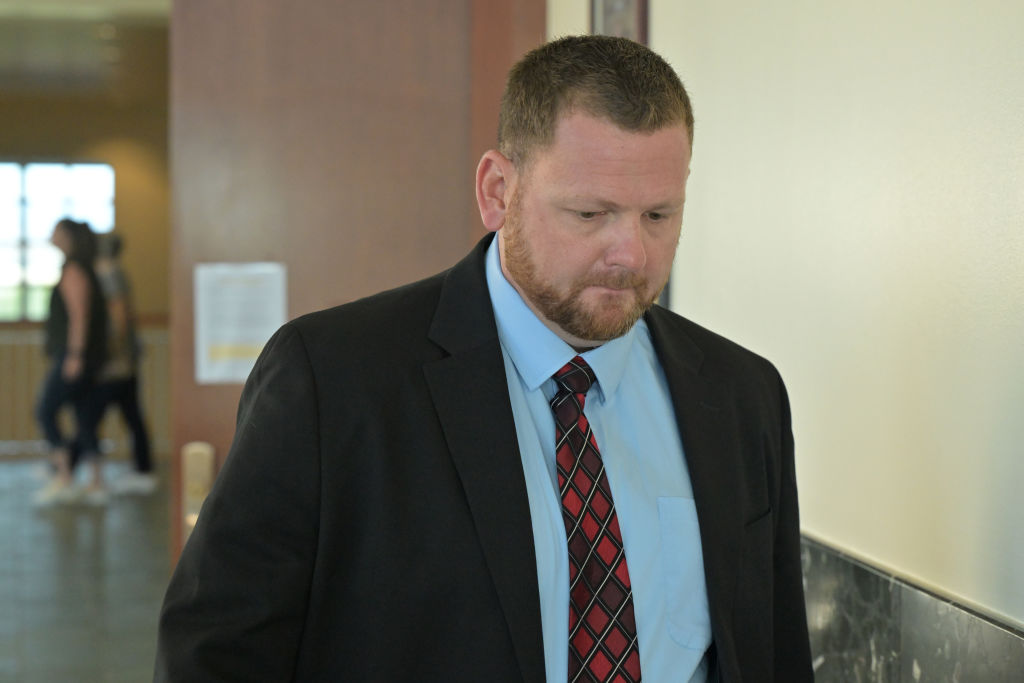
Source: Hyoung Chang / Getty
But Beuther’s point was then rebutted by the defense team who then asked, “You can’t state with a medical degree of certainty that any specific law enforcement actions actually caused any of those three conditions: Medical acidosis, aspiration or hypoxia,” which prompted Beuther to support the defense’s statement.
Beuther was also questioned about the fluid in McClain’s lungs, which he suggests likely got there when McClain was standing up or lying down on his back.
“It’s my expert opinion that he aspirated while the mask was on,” Beuther said. “We know he aspirated, from what happened at the very end of this event at the hospital, and that could have many causes and occurred at any time, but to have solid particles in the mask says he had a major regurgitation, or vomiting, while the mask was on.”
Buether also testified that he believed ketamine, which was injected into McClain by paramedics, was not the only factor in his death.
“In my opinion, it [ketamine] was not the only factor in his death,” Beuther said. “It was the aspiration into the airway, it was the acidosis, it was also the position he was put in that reduced his ability to cough, clear his airway or breathe inadequately.”
Prosecutors call their first witness
Prosecutors called their first witness last week in the trial of two officers charged in connection to the death of 23-year-old Elijah McClain. According to CBS News, during testimony, police lieutenant Delbert Tisdale discussed how body cameras collect “digital evidence” as prosecutors try to make their case against the ex-officers. Tisdale oversees the bodycam program at the Aurora Police Department.
Prosecutors also introduced into evidence video of the confrontation between McClain and the charged officers the night he died. The footage, which was released to the public shortly after the incident, includes McClain telling officers, “I can’t breathe,” the same plea George Floyd made before his untimely death.
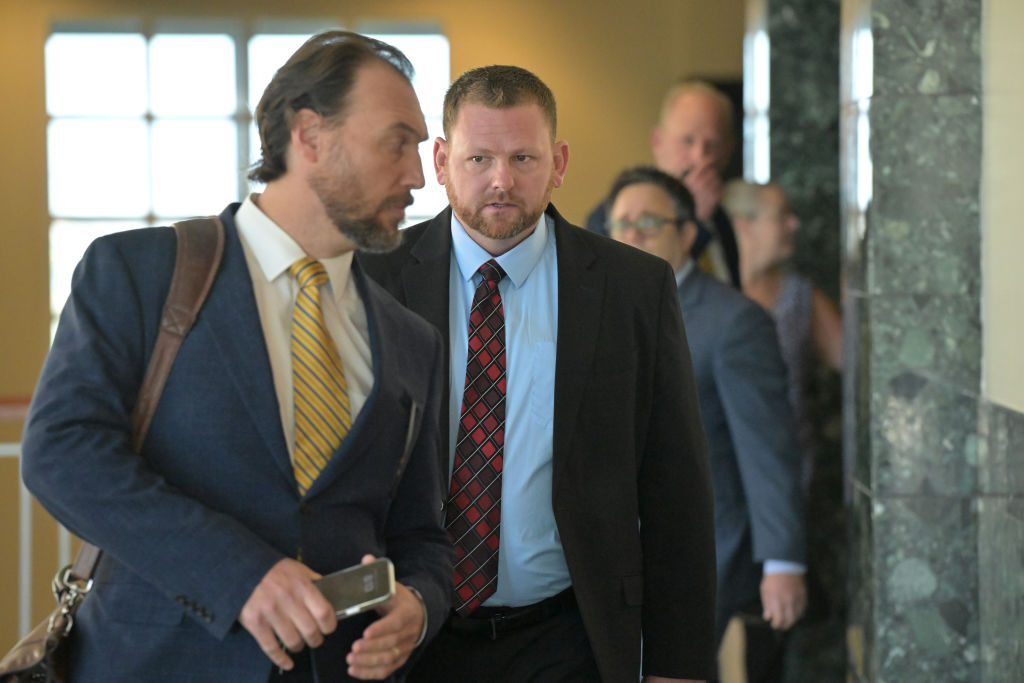
Source: Hyoung Chang / Getty
During opening statements, prosecutors began painting a picture of negligence among the officers, while the defense tried to prove that the officers were not at fault, shifting the blame to the paramedics.
Jury selection wrapped on Monday in the trial for the two officers charged.
According to AP, lawyers on both sides were expected to lay out very contrasting accounts of what happened the night Elijah McClain lost his life.
This is the first of several trials stemming from the death of McClain.
From AP:
One question jurors could be asked to decide is whether it was lawful for officers Randy Roedema and Jason Rosenblatt to detain and use force against McClain, who a 911 caller had reported as being suspicious. If prosecutors can convince jurors the stop was unjustified, that would undermine any argument that McClain’s injuries were a result of the officers just doing their jobs.
Elijah McClain was killed in 2019 by Denver police after he was stopped, harassed, then restrained and injected with ketamine. His death regained the attention of the world after George Floyd was killed in 2020 by Minneapolis officer Derek Chauvin. After Floyd’s death, millions of people called for Colorado officials to reopen the investigation into the death of Elijah McClain.
In 2021, a Colorado grand jury ultimately indicted five police officers and paramedics on manslaughter, criminally negligent homicide as well as other charges.
Aurora police officer Randy Roedema and former officer Jason Rosenblatt are the first defendants to stand trial. Both men pleaded not guilty to charges in January and according to a spokesperson for the Colorado Attorney General’s Office, their trial is scheduled to last until Oct. 17. Roedema is currently suspended without pay while Rosenblatt was fired for making light of a photo reenacting a neckhold similar to the one used on Elijah McClain.
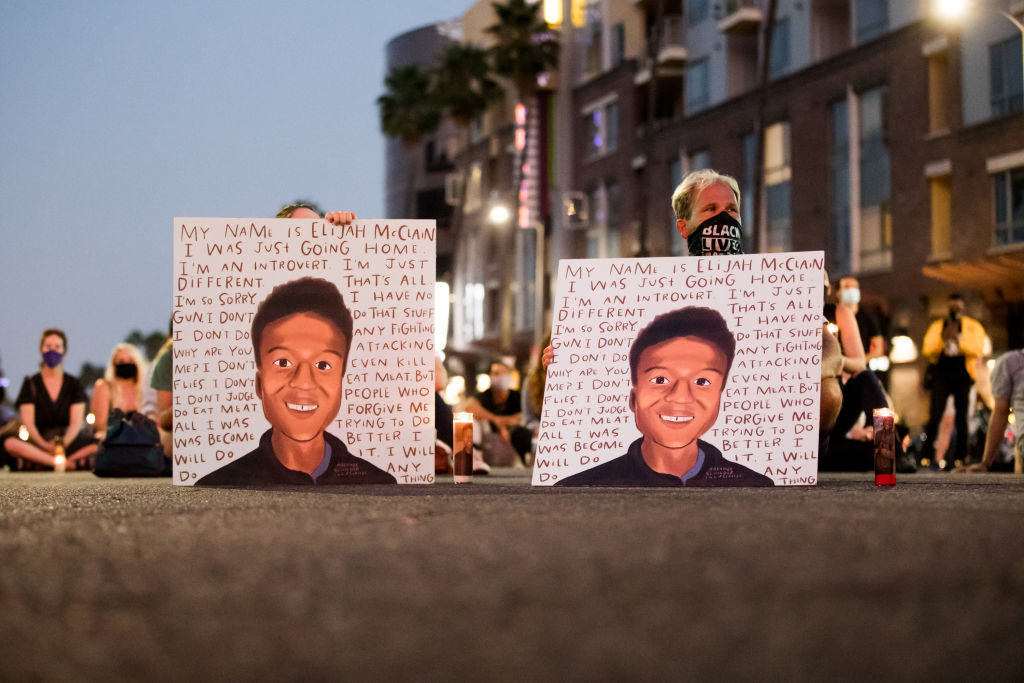
Source: Rich Fury / Getty
Here is everything we know about the case leading up to the trial:
August 2019 – The Death Of Elijah McClain
On Aug. 24, 2019, Elijah McClain was on his way home from a gas station where he bought four cans of Brisk tea when he encountered officers. They stopped him after receiving calls of a “suspicious man.”
Soon, the situation escalated and they put McClain, a Denver native and massage therapist in Aurora, in a chokehold and forced him to the ground for 15 minutes. He eventually started vomiting and complaining that he couldn’t breathe.
“There was a physical struggle,” former APD Chief Nick Metz said back in October. “When (police) saw (McClain), they told him to stop. He wouldn’t stop. Again, he was wearing a ski mask, it’s 10:30 p.m. at night in a residential area, so obviously that creates some concern.”
However, according to Elijah’s family, he was anemic and he favored wearing a ski mask to keep his face warm while he was walking.
In November 2019, a judge ruled that criminal charges wouldn’t be pressed against the cops involved in the arrest of McClain because there wasn’t any indisputable evidence that an officer used “unjustified” force.
May 2020 – The Death Of George Floyd
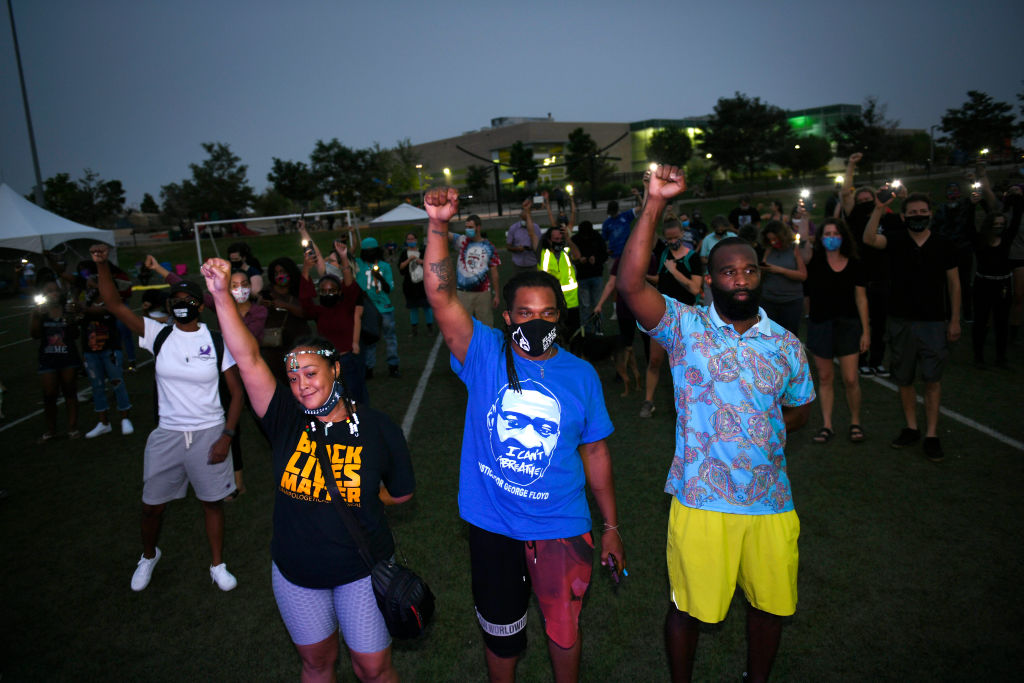
Source: Helen H. Richardson/MediaNews Group/The Denver Post via Getty Images / Getty
George Floyd’s death on May 25, 2020, was the catalyst for renewed calls for justice in the death of Elijah McClain. After Floyd’s death, activists demanded policy changes throughout the country including banning the chokehold.
February 2021 – Independent Investigation Finds Cops Had No Legal Basis For Stop
An independent probe launched in February 2021, found that police and paramedics made crucial errors, leading to the 23-year-old’s demise. The report released stated that Aurora, Colorado, police officers involved in the fatal August 2019 confrontation did not have a legal basis to stop him, frisk him or physically restrain him.
“At the time of the (ketamine) injection, Mr. McClain had not moved or made any sounds for about one minute,” a section of the 157-page report states, according to CNN. “In addition, EMS administered a ketamine dosage based on a grossly inaccurate and inflated estimate of Mr. McClain’s size.”
McClain who stood at 5-foot-7 and 140 pounds was administered enough ketamine for a man weighing 190 pounds, according to the panel’s findings.
The investigation also claims that officers never “articulated a crime that they thought Mr. McClain had committed, was committing or was about to commit,” and that their intervention set up “ramifications for the rest of the encounter.”
September 2021 – Cops, Paramedics Charged In Black Man’s ‘Murder’
Two years after the death of Elijah McClain the Colorado police officers and paramedics involved in his death were indicted by a grand jury.
The manslaughter indictments in Elijah McClain’s death — which advocates have called “murder” — came more than one year after the Aurora City Council unanimously voted to adopt a resolution calling for an independent investigation following allegations of misconduct by officers with the Aurora Police Department and the responding paramedics.
A total of five people were charged — two police officers, one former police officer and two paramedics — each with one count of manslaughter and criminally negligent homicide for the death that was preceded by McClain telling police that he couldn’t breathe because of the chokehold in which he was placed.
A total of 32 counts were handed down by Colorado Attorney General Phil Weiser, who was appointed a special prosecutor in the case. McClain’s father told NBC News he was “thankful” that McClain’s killers will finally be held accountable.”
November 2021 – Aurora, Colorado Pays Elijah McClain’s Family $15 Million Settlement

Source: Hyoung Chang/MediaNews Group/The Denver Post via Getty Images / Getty
In November 2021, over two years after the death of Elijah McClain, the city of Aurora settled with his family. In the settlement, they received $15 million, which was considered the largest such settlement in Aurora’s history.
September 2022 – Elijah McClain’s Amended Autopsy Affirms Violent Arrest Caused His Death
On Sept. 24, 2022, Colorado Public Radio reported the autopsy report was changed to death by ketamine. The amended autopsy was released over a year after officials ordered its update.
As amended, the autopsy confirmed that Elijah died due to “acute Ketamine administration during violent subdual and restraint by law enforcement and emergency response personnel.”
SEE ALSO:
Justice For George Floyd: A Complete Timeline Of Ex-Cops Being Held Accountable For Police Murder
A Disturbing Timeline Of Ahmaud Arbery’s Killing And Murder Investigation In Georgia

